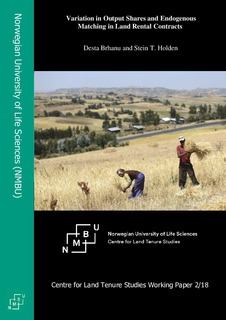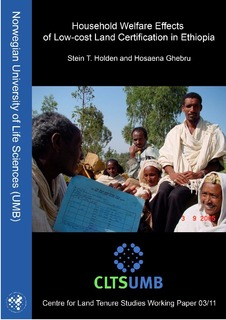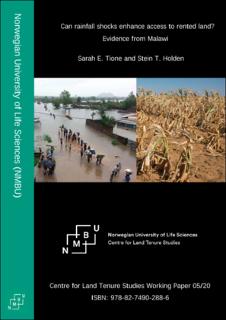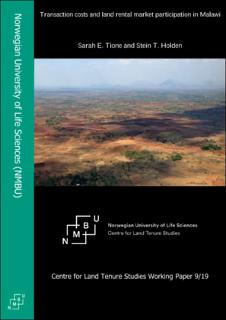Variation in output shares and endogenous matching in land rental contracts
We investigate the extent of variation in output sharing in land rental contracts and alternative hypotheses to explain this variation. Close to half of the rental contracts in our study in northern Ethiopia have output shares that deviate from the dominant 50-50 equal sharing. Variation in land quality, the relative bargaining power of landlords and tenants, production risks and shocks are hypothesized to influence output shares. Matched data of landlords and tenants are used.







